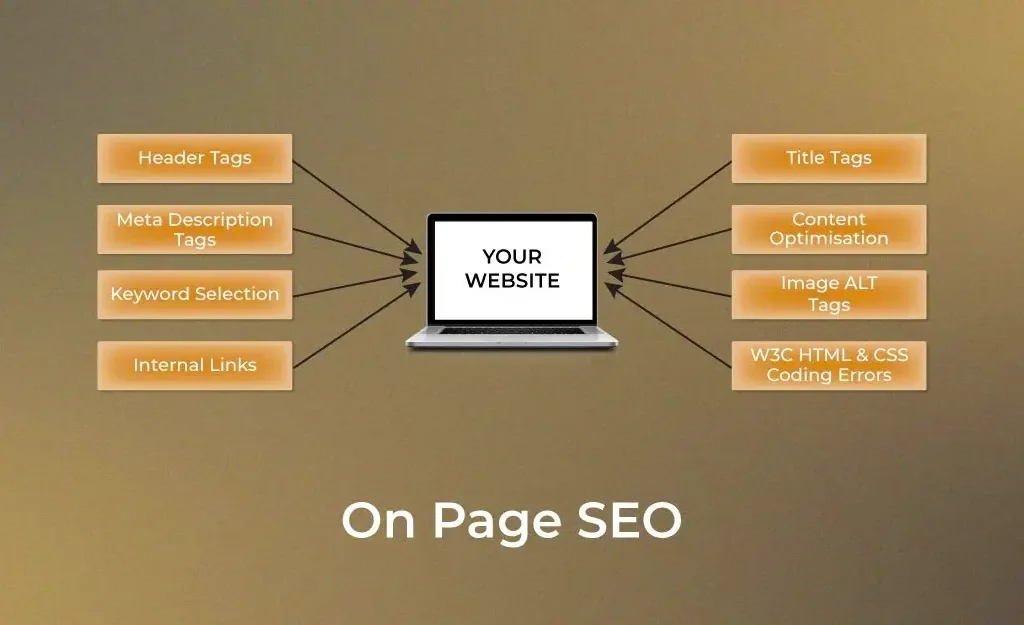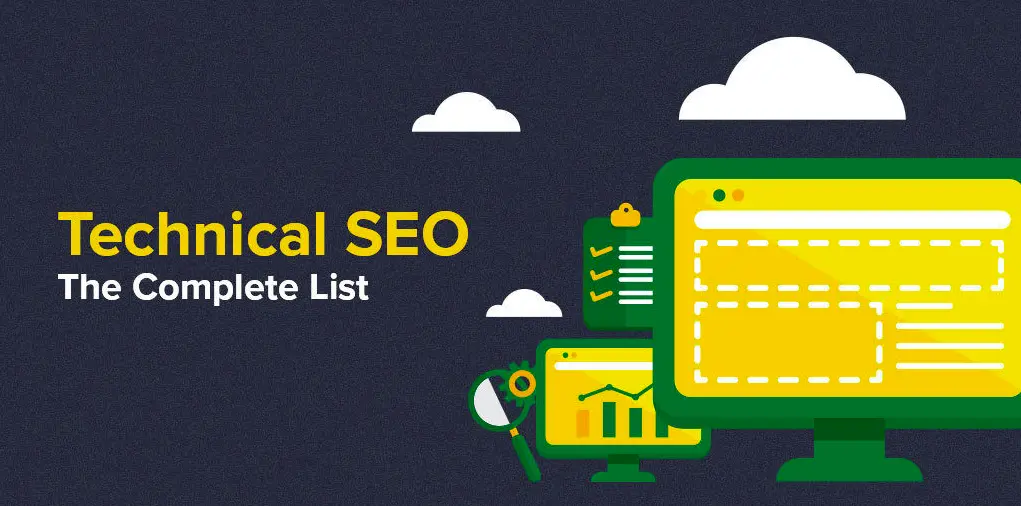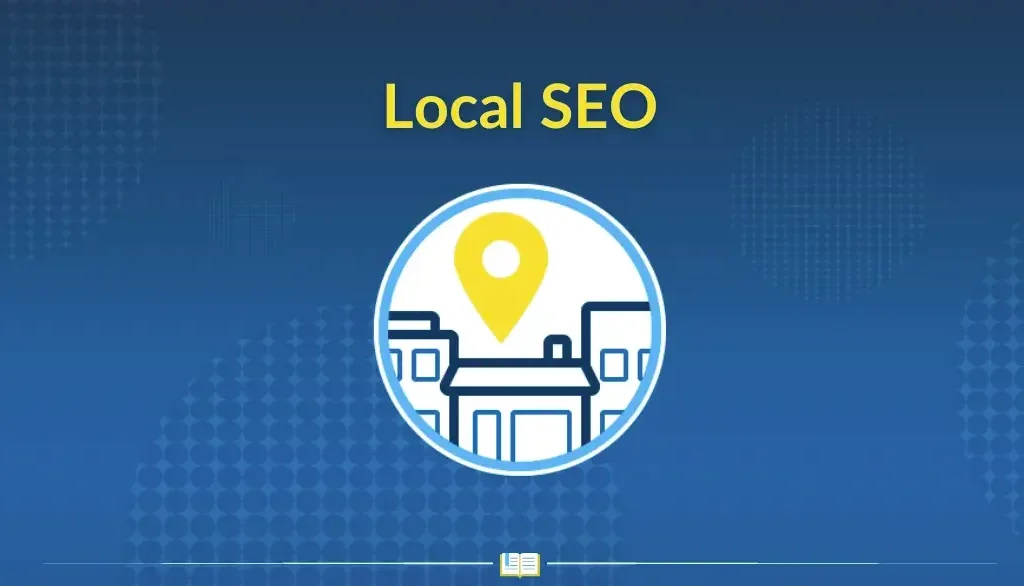What is SEO in Digital Marketing?
Search Engine Optimization (SEO) plays a pivotal role in the digital marketing landscape. In simple terms, SEO involves optimizing your online content to improve its visibility on search engine results pages (SERPs). Let’s delve into the intricacies of SEO and its significance in the realm of digital marketing.
Understanding SEO
SEO is the practice of enhancing the quantity and quality of traffic to your website through organic search engine results. It involves various strategies and techniques aimed at making your content more accessible and appealing to search engines.
Components of SEO: On-Page and Off-Page

SEO can be broadly categorized into two main components: On-Page and Off-Page. On-Page SEO deals with optimizing individual web pages for search engines, including factors like content, meta tags, and URL structures. Off-Page SEO, on the other hand, focuses on building your site’s credibility through external factors such as backlinks and social media signals.
The Role of Keywords
Keywords are the backbone of SEO. They are the terms and phrases users type into search engines when looking for information. Effective keyword research is crucial for understanding your target audience and tailoring your content to meet their needs.
Keyword Research Techniques
Utilizing tools like Google Keyword Planner, SEMrush, and Ahrefs can help identify relevant keywords for your content. Long-tail keywords, specific phrases containing three or more words, can also be powerful in capturing niche audiences.
On-Page SEO Strategies

Creating content is just the beginning; optimizing it for search engines is equally vital.
Title Tags and Meta Descriptions
Crafting compelling title tags and meta descriptions not only boosts your search engine ranking but also entices users to click through to your site. These elements serve as a brief preview of what your content offers.
Content Optimization and Quality
Search engines value high-quality, relevant content. Ensure your content addresses user queries, provides value, and maintains readability. Strategic use of headers and bullet points enhances content structure.
URL Structure and Internal Linking
A clean and descriptive URL structure contributes to a better user experience and search engine visibility. Internal linking between pages on your website establishes a logical hierarchy and helps distribute page authority.
Off-Page SEO Techniques

Off-Page SEO focuses on building your website’s reputation and authority across the internet.
Backlink Building
Quality backlinks from reputable websites signal to search engines that your content is valuable. Actively seek opportunities for guest posts, collaborations, and mentions from authoritative sources.
Social Media Signals
Engaging in social media not only broadens your online presence but also generates social signals that impact search engine rankings. Share your content across platforms, encourage sharing, and participate in relevant discussions.
Influencer Collaborations
Partnering with influencers in your industry can amplify your reach and credibility. Influencers bring their followers’ attention to your content, leading to increased visibility.
Technical SEO Considerations

Technical SEO addresses the backend aspects of your website that affect its performance and accessibility.
Site Speed and Mobile Optimization
User experience is paramount. Slow-loading websites and poor mobile optimization can result in higher bounce rates. Optimize images, leverage browser caching, and ensure your site is mobile-friendly.
XML Sitemaps and Robots.txt
XML sitemaps guide search engines in indexing your site, while robots.txt helps control which pages should not be crawled. Regularly update and review these elements to align with your SEO strategy.
Canonicalization
Dealing with duplicate content issues, canonicalization involves specifying the preferred version of a page to be indexed. This prevents search engines from penalizing your site for duplicate content.
Local SEO Tactics

Local SEO caters to businesses targeting a specific geographic location.
Importance of Local SEO
For brick-and-mortar businesses or those with a local focus, optimizing for local search is crucial. This involves creating and optimizing a Google My Business listing, obtaining reviews, and ensuring accurate business information.
Google My Business Optimization
Complete your Google My Business profile with accurate details, high-quality images, and relevant categories. Encourage satisfied customers to leave positive reviews, as these contribute to your local SEO ranking.
Algorithm Updates and SEO
Search engines continually refine their algorithms, impacting how content is ranked.
The Impact of Search Engine Algorithm Changes
Staying informed about algorithm updates, such as Google’s Page Experience Update, is essential. Adapt your SEO strategies to align with these changes to maintain or improve your ranking.
Adapting to Algorithm Updates
When algorithms change, reassess your SEO tactics. Prioritize user experience, mobile-friendliness, and secure connections to meet the criteria of updated algorithms.
Measuring SEO Success
To gauge the effectiveness of your SEO efforts, it’s crucial to track key performance indicators (KPIs).
Key Performance Indicators (KPIs) in SEO
KPIs such as organic traffic, keyword rankings, and conversion rates provide insights into your SEO performance. Regularly analyze these metrics using tools like Google Analytics and Search Console.
Tools for Tracking SEO Performance
Google Analytics, SEMrush, Moz, and Ahrefs are valuable tools for monitoring and analyzing your SEO performance. Leverage these tools to refine your strategies based on real-time data.
SEO Trends in Digital Marketing
Staying ahead in the dynamic field of digital marketing requires adapting to emerging trends.
Voice Search Optimization
The rise of voice-activated devices necessitates optimizing content for voice search. Focus on natural language and long-tail keywords that align with spoken queries.
Video Content and SEO
Video content continues to gain prominence. Incorporate video into your content strategy, ensuring it is engaging, relevant, and optimized with descriptive titles and tags.
Artificial Intelligence in SEO
AI is revolutionizing SEO. Machine learning algorithms power search engine results, making it imperative to understand and leverage AI for SEO success.
SEO for E-Commerce

E-commerce websites face unique challenges in SEO.
Unique Challenges in E-Commerce SEO
Large product catalogs, frequent content updates, and dynamic pricing structures pose challenges. Implement strategies like product schema markup and user-generated content to overcome these hurdles.
Best Practices for Online Stores
Optimize product descriptions, use high-quality images, and prioritize user reviews. Implement a secure and efficient checkout process to enhance the overall user experience.
International SEO Strategies
Expanding your reach globally requires tailored SEO strategies.
Expanding Reach Through International SEO
Research and understand your target markets. Implement hreflang tags to indicate language and regional targeting, and consider cultural nuances in your content.
Multilingual Content and Hreflang Tags
Craft content in multiple languages for a global audience. Hreflang tags specify the language and regional targeting of each page, ensuring users find content in their preferred language.
SEO and Content Marketing Integration
Harmonizing SEO with content marketing efforts maximizes impact.
Creating Synergy Between SEO and Content Marketing
Quality content is the cornerstone of both SEO and content marketing. Align your strategies to create content that not only ranks well on search engines but also resonates with your audience.
Role of Quality Content in SEO
Search engines prioritize valuable, relevant, and authoritative content. Invest in creating content that answers user queries, provides solutions, and establishes your expertise in your niche.
Conclusion
In the dynamic landscape of digital marketing, SEO remains a cornerstone for online success. By understanding the intricacies of SEO, staying abreast of algorithm updates, and integrating strategies tailored to your business, you can enhance your online visibility and connect with your target audience more effectively.
FAQs
While keywords are crucial, SEO encompasses various strategies, including content optimization, backlink building, and technical considerations.
Regularly reassess your strategy, especially when search engine algorithms change or when there are significant shifts in your industry.
Basic SEO practices can be implemented without in-depth technical knowledge, but understanding technical aspects can enhance your strategy.
Local SEO helps businesses target specific geographic areas, attracting local customers and improving visibility in local searches.
User experience is a ranking factor, influencing how users interact with your site and impacting your search engine ranking.








